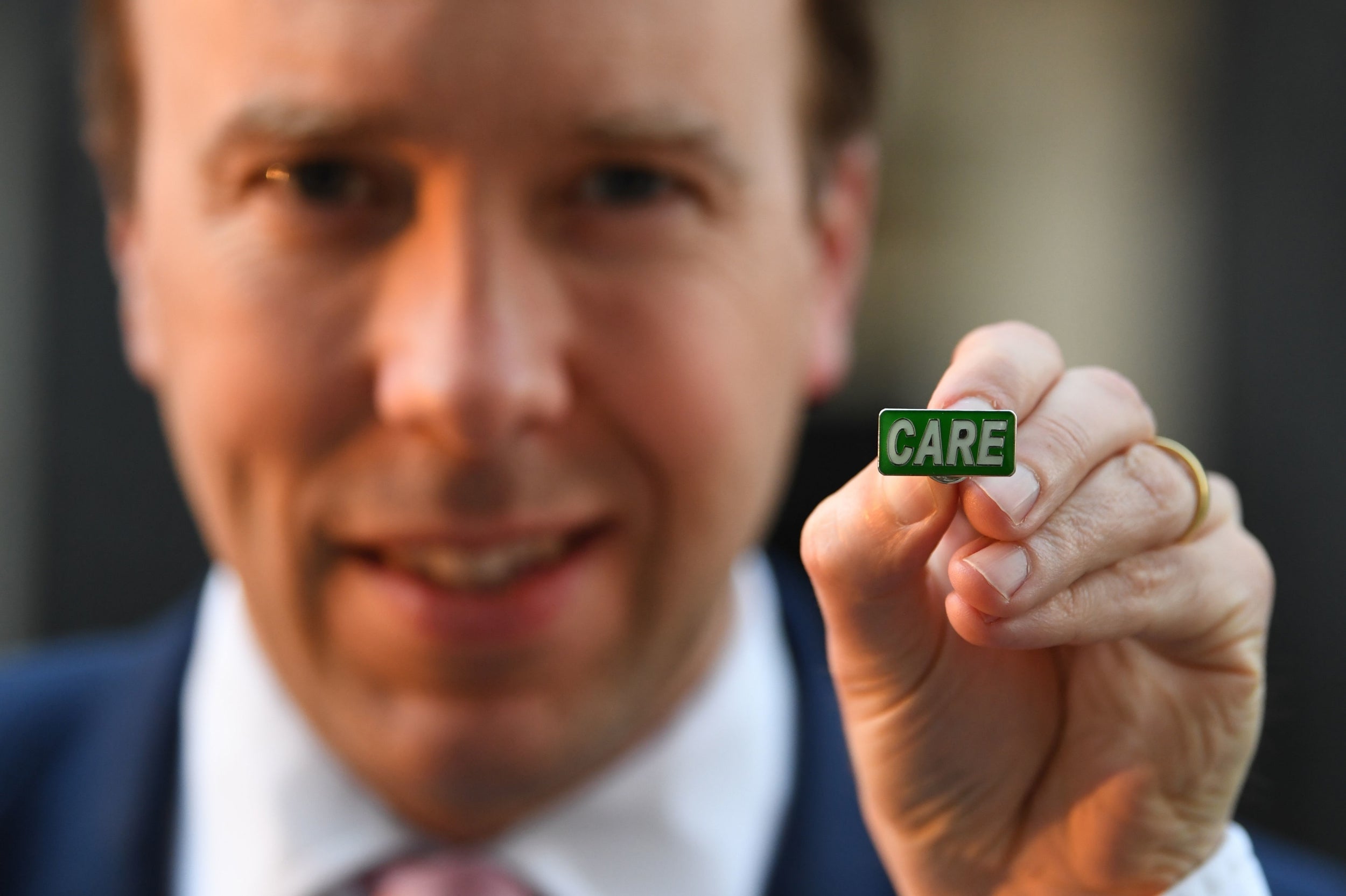Coronavirus: The blame game in Westminster has truly begun
Even by the usual standards, we are seeing an unedifying exhibition of base politics, writes Sean O’Grady


Before the judge has been appointed, before the public inquiry has had its remit set, and long before the crisis is over, the blame has begun. Various unnamed officials “close to Downing Street” and the like have begun to get their excuses in early, and to identify handy scapegoats. Even by the usual leaky and cowardly standards of Whitehall it has been an unedifying exhibition of base politics.
The latest victim of assassination by briefing is the secretary of state for health and social care, Matt Hancock. A former Treasury special adviser to George Osborne, and a former Tory leadership contender, the ambitious Mr Hancock had enjoyed a good start to the crisis, or at least appeared to. He had an action plan. He had impressive expert advisers flanking him at press conferences – the two gentlemen of corona, chief medical officer Chris Whitty and chief scientific adviser Patrick Vallance. He was chairing Cobra meetings. The government would be guided by “the science”. Things seemed under control.
Then it all went wrong. The science changed, or the advice did. The lockdown arrived, late. The shortages of ventilators, PPE and tests grew ever more acute. The media demanded answers, deadlines, dates.
Mr Hancock’s error was probably to give them one – 100,000 tests per day by the end of April. He explained that he had set such an exacting goal precisely to galvanise himself and the machinery of government. It was, so his detractors say, a figure that “could come back to bite him”. Pictures of deserted coronavirus testing centres add to his embarrassment. The appointment of a PPE “tsar” Lord Deighton could be thought a ritual humiliation.
No matter that Boris Johnson had once set a target of 250,000 tests per day – he was wise enough not to put any date on it. Mr Hancock is badly exposed to a preemptive sacking or, more likely, further sidelining long before the public inquiry begins its work.
Something of the same, however, goes for the prime minister and his svengali, Dominic Cummings. Again, more anonymous sources have complained about the prime minister’s easy-going ways, skipping Cobra meetings, breaks in grace-and-favour country estates and weekends off, living the cushy life, its alleged, of a local authority boss of two decades ago. Was Mr Johnson neglectful of how the country would be run if he became ill? The conventions traditionally held about cabinet government do not apply when so much power is concentrated in No 10, and when a leader so dominates his colleagues.
Then there are the various officials themselves – Whitty, Vallance and company, and Public Health England. So far from being the blameless neutral public servants of constitutional convention, rumblings of criticism are being heard about them. Were they wrong about the threat? About allowing the Cheltenham Festival and that Liverpool-Atletico Madrid match to go ahead? What deputy chief medical officer Jenny Harries calls “an interesting hypothesis” about that game will prove more urgent and political than some polite discussion among virologists 18 months hence. Was the lockdown too late, on their insistence? Or did the prime minister hesitate too long? And was Public Health England too centralised and bureaucratic to get its act together and respond to offers of help on PPE? Who botched the procurement of the new ventilators?
And so on and on. In a way a future public inquiry may mirror the Hutton Inquiry and other investigations into the 2003 Iraq War. Official scientific and epidemiological advice, like intelligence, can be nuanced and conflicting, especially when, as with coronavirus, so little was known; hindsight is a great distorter. “Advisers advise, ministers decide” is a handy adage, but doesn’t really fit recent more muddied circumstances. In truth, so much went so wrong so egregiously that there will be more than enough blame to go round. Few will be able to emerge from the crisis with their reputations enhanced. Public opinion has so far given ministers the benefit of the doubt, but it could turn quickly. No wonder the blame game’s afoot.
Join our commenting forum
Join thought-provoking conversations, follow other Independent readers and see their replies
Comments